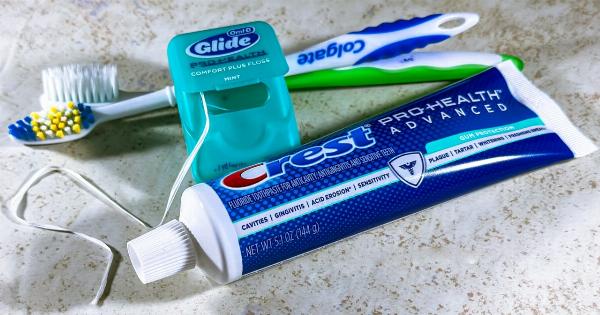Sunscreen and toothpaste are both considered essential products in our daily lives. However, we seldom consider the harmful effects that these products can have on our health, particularly on fertility.
Several chemicals that are present in sunscreen and toothpaste have been linked to infertility in both men and women. This article aims to throw light on the toxicity of sunscreen and toothpaste and how they can impact fertility.
Sunscreen and Its Harmful Effects on Fertility
Sunscreen is used to protect our skin from harmful UV radiation from the sun. However, research has indicated that several chemicals used in sunscreen can have a detrimental effect on fertility.
Chemical filters present in sunscreen such as oxybenzone, avobenzone, and octinoxate have been found to disrupt the endocrine system, leading to hormonal imbalances that can cause infertility in both men and women.
These chemicals in sunscreen are also known to cause various reproductive disorders. In men, they can reduce testosterone levels, leading to low sperm count and decreased sperm motility.
On the other hand, in women, such chemicals can disrupt the menstrual cycle and lead to an inability to conceive.
Toothpaste and Its Adverse Effects on Fertility
Fluoride is a commonly used chemical in toothpaste that helps to prevent tooth decay. However, several studies have linked the presence of fluoride in toothpaste to reduced fertility rates.
Fluoride has been found to affect the reproductive system by disrupting the functioning of the thyroid gland. This gland controls the production of hormones that are responsible for fertility.
When the functioning of the thyroid gland is disrupted, it affects the production of these hormones, leading to decreased fertility rates.
The Adverse Effects of Triclosan on Fertility
Triclosan is an antibacterial agent that is used in several personal care products, including toothpaste and soap. However, it has been found to have several adverse effects on fertility.
Studies have indicated that triclosan can disrupt the endocrine system, leading to hormonal imbalances that can cause infertility in both men and women.
The presence of triclosan in toothpaste has been found to reduce sperm count, affect sperm motility and morphology, and reduce levels of testosterone in men. In women, it can disrupt the menstrual cycle and lead to an inability to conceive.
The Adverse Effects of Parabens on Fertility
Parabens are chemicals that are used as preservatives in several personal care products, including sunscreen and toothpaste. However, they have been linked to reduced fertility rates in both men and women.
Parabens can disrupt the endocrine system, leading to hormonal imbalances that can cause infertility.
Studies have indicated that the presence of parabens in sunscreen can also reduce sperm count, decrease sperm motility, and affect the morphology of sperm in men. In women, it can disrupt the menstrual cycle and lead to an inability to conceive.
The Importance of Choosing Safe Sunscreen and Toothpaste
Given the harmful effects that certain chemicals in sunscreen and toothpaste can have on our health, it is essential to choose safe alternatives.
Opting for organic and natural products can help reduce the exposure to these harmful chemicals and prevent the adverse effects they can have on fertility.
It is also important to read labels carefully to ensure that the products we use are free from harmful chemicals.
Avoiding products that contain oxybenzone, avobenzone, octinoxate, fluoride, triclosan, and parabens can help reduce the risk of hormonal imbalances and infertility.
Conclusion
In conclusion, several chemicals present in sunscreen and toothpaste can have a detrimental effect on fertility.
The presence of oxybenzone, avobenzone, octinoxate, fluoride, triclosan, and parabens can disrupt the endocrine system and lead to hormonal imbalances that can cause infertility. Opting for organic and natural alternatives can reduce the exposure to these harmful chemicals and prevent the adverse effects that they can have on fertility.




























